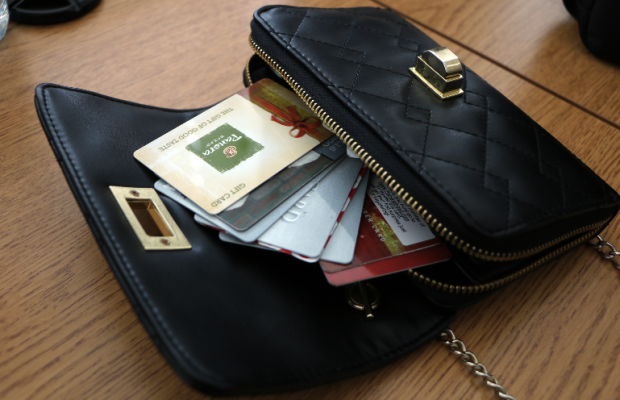You can make your money work for you

By: Sierra Steen
The natural reaction to making money is to spend it right away, most commonly on unnecessary or temporary things. It can feel rewarding to buy yourself lunch every day of the school week or to get a new pair of shoes, but saving your money instead is a long-term reward that you will be even more happy with.
Of course, saving money is easier said than done. There’s going to be times when you want to splurge and treat yourself, and that is perfectly fine. It’s important to learn how to manage how much you spend and how much you put away so that you have room to both have money for the future and for the small treats.
Luckily for me, I grew up with a father who is a banker, so tips and how-to’s have always been easily accessible for me. A lot of young people don’t get this same privilege. It’s even worse that in high school, we don’t have mandatory classes geared towards money management. Instead, people our age are forced to either try and manage their hard-earned money without guidance, take an elective business class or have to turn to the Internet for tips. At our age, there isn’t a ton that we can do, but there are at least a few small things that will help us get ready for our future.
Start by asking yourself how much money per check/allowance you put away in a savings account, or if you put any away at all. My dad says that even by putting a small amount in can add up, but the recommended amount is about half your check. That way, you can spend half of your check without feeling bad, and the other half will stay tucked away in a different account. Depending on the size of the check, financial need and other factors, half of a check might be too much, so be sure to plan ahead for how much you will need to have accessible to spend.
Many people our age don’t know how to manage their credit or even know what credit is, so understanding what it entails is extremely important. This is more applicable to the future, but at least learning about it now will put you ahead of the game. Credit is basically the ability for a person to purchase something with the promise that they will be able to pay it off in the future. For now, my dad says that a lot of our purchases should be made with debit, at least until you begin looking into credit and how to use it properly. By paying with debit, your money is taken directly from your bank account, meaning you don’t have to worry about paying it back in the future. Asking a parent, your banker or even the Internet can help you further understand how to use credit and whether or not that is a step you wish to take.
Most importantly, planning ahead is the major key to financial success. Think of everything you wish to buy as a grocery list. By keeping track of the purchases you for sure are willing to pay money for, it will be easier to stay on track without buying unnecessary things. It’s also good to keep your receipts so that you can see how much money you have spent, which will help when paying taxes in the future.
When you want to buy something (or multiple somethings), rank it on how important it is that you purchase it at the moment. If it’s something such as food, supplies, toiletries or anything that is seen more as a need rather than a want, it’s safe to say it will rank at a higher level. Items that are a want are less important and should be held off until you save up extra money to purchase them, rather than blowing your paycheck right away. Of course, things that are the most important are things that cannot (or should not) be held off, such as bills, fees, repairs and so on. Thinking ahead and planning what you wish to purchase instead of following the urge to spend right away will help you not only now but in the future when budgeting and saving are even more important than they are now.
By planning ahead and educating yourself about finances now, you are setting yourself up for a more successful (and less stressful) future. Working and earning money is one thing, but actually saving your money is another. Learning how to manage the amount you spend and the amount you save is an incredibly important skill that should be taught at a young age, and now is the prime time to teach yourself and to get the facts you need in order to help yourself in the long run.









You must be logged in to post a comment Login